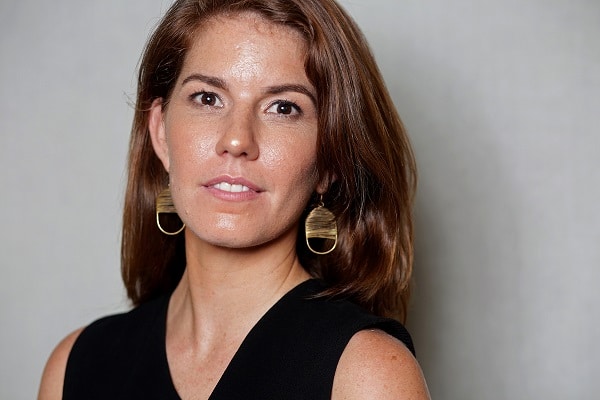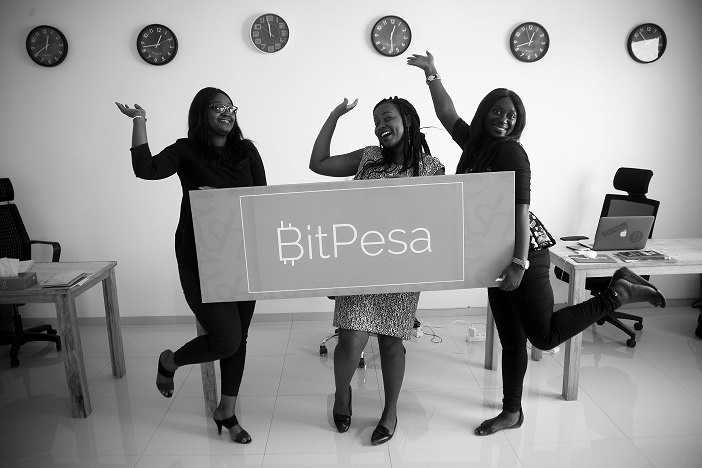In 2007, Elizabeth Rossiello, founder and CEO of, sub-Saharan African B2B and foreign exchange company, BitPesa, decided to call it quits on her job as an investment banker at Credit Suisse for a new adventure. She ended up in Nairobi two years later to head the entire East and Southern Africa operation for Planet Rating, a travel tech startup.
Given her background in finance, she was involved in the financial, social ranking, and training of microfinance institutions on best practices. And at later points, between 2011 and 2013, she took on financial roles at two global non-profit impact investment funds while still based in Nairobi.

Her roles allowed her to interact with many chief executives, microfinance institutions, and independent foreign contractors and suppliers looking at cross-border trade with Africa. It was, however, a matter of time before some of the foreign contractors found the inefficiencies of banks too hard to deal with. A sizable number exited their respective local markets to put an end to their foreign exchange (FX) losses.
Beyond the signature infrastructural challenges bedeviling financial institutions in many parts of Africa, there was a problem of liquidity across as many African countries Elizabeth visited. It stuck to her.
Liquidity problem in Africa
Financial markets in most countries on the African continent are plagued by structural challenges such as limited access to foreign exchange, low capacity of local investors, and weak regulations.
The World Bank forecasts that the Africa nations of Côte d’Ivoire, Djibouti, Ethiopia, Ghana, Senegal, and Tanzania will represent six of the ten fastest-growing economies in the world come 2018 (last year). However, underdevelopment of Africa’s financial markets has set the continent back.
For instance, Ethiopia ranked lowest on a financial market index by Barclays Africa Group in its inaugural Financial Markets Index report populated a year before the World Bank’s 2018 forecast.
On the West Africa corridor, banks in Angola, Nigeria, and DR Congo are still affected by foreign currency shortages, despite these countries being major oil exporters from the continent. So when a supplier of imported equipment, for instance, look beyond frontier markets when doing business, the reasons aren’t farfetched.
They are unable to meet debt payment obligations, as the associated local currency weakness increases the cost of servicing unhedged foreign currency and reduce repatriated profits in foreign currency. Sending money in and out of Africa is expensive and the transaction process, which lacks transparency, is time-consuming.
Like remittance, but efficient
In parts of the continent — especially commercial hubs like Nairobi and Lagos — a growing number of people are finding that cryptocurrencies offer a cheaper solution to an expensive problem like transferring funds across borders. So starting out, BitPesa found it convenient to do business transactions in and out of frontier markets in Africa using cryptocurrency.
“We used cryptocurrency as an intermediary currency for African transactions in the beginning because we wanted to reduce the reliance on US dollars,” Elizabeth explained.
That way, it allowed people who bank with small regional banks in a foreign country to send money to a local bank in any frontier market, without having to go through the correspondent banks, which take a cut and can route payments to unknown destinations before arriving in the local bank of customers.
However, since the June 2014 launch, BitPesa has grown as a platform. So much so that it has had to adopt a lot more compliant of a method to trading FX beyond cryptocurrency.
“Today, we’ve done a billion dollars worth of transactions and only about 15% of this volume is through cryptocurrency; the rest of it through a netting and pooling model,” Elizabeth admitted.
This is a hybrid infrastructure that optimises pooling and use of local currencies in a way that eliminates intermediary currencies or a switching bank. With regulatory approvals that have resulted in about 45 licensed banking and mobile wallet partnership in as many frontier markets, BitPesa is able to ensure last-mile local currency transfer to and from three continents and in a time frame of between 1-24 hours.
The company is able to do this without charging exorbitant fees often found in the corridors of the bank or on the black market. Like any FX company, BitPesa charges a fee, albeit merely 1-3% on average.
“However, for certain corridors that are very cryptocurrency-inclined, say East Africa to Japan, we are able to allow complete cryptocurrency transaction,” noted Elizabeth
Improving cross border trade
Cross border trade is an important element that will reduce poverty in Africa and boost the economies of countries within the continent. Building efficient infrastructure that could help urban customers trade with local businesses is one way this trade can be supported to ensure that it delivers its full potential.
Suffice to say this is what BitPesa is trying to do by enabling cross border payment. The only snag is that a high proportion (87%) of banks in Africa are reportedly (PDF) engaged in intra-African trade finance activities.
Between 2013 and 2014 the value of bank-intermediated trade finance in Africa was estimated at $430 billion and $362 billion respectively. A going concern problem therefore arises for a digital service like BitPesa which, beyond just competing with other FX businesses, is eyeing the revenue of these banks.
However, banks themselves have marginalised an important segment of its market, as the bulk of their total trade finance activities goes into serving large companies. Only 28% benefits SMEs, in spite of the fact that small-scale cross border trades remain crucial to the development of frontier markets, let alone for a continent with over a million SME-count spread especially across its most vibrant countries.
Even though BitPesa’s clients include some of the largest African companies, particularly in the industries of travel, ecommerce, digital advertising, and marketing, a major focus is on small and mid-sized SMEs.
“We believe in the potential of SMEs in the continent. There are big difficulties for businesses and even bigger difficulties for SMEs and it’s important that we provide reliable, consistent SME services as they are growing. That is what would really help cross-border trade in Africa,” Elizabeth clarified.
Average fee for individual and SME-related transaction on BitPesa is 3% and gets as low as around 1 – 1.5% for volumes near $10,000 and above.
Traction and growth
BitPesa’s growth has been quite remarkable. From sending $5,000 a month in the launch year, BitPesa now sends $65 million a month in cross border transactions, serving the following 11 markets: Tanzania, Uganda, Kenya, Morocco, Ghana, Nigeria, South Africa, Ivory Coast, Benin, Togo, and Senegal.
The percentage growth in volume is consistently at 20% month on month, according to Elizabeth. Over the years, BitPesa has raised $10 million series A funding disbursed in two tranches. Although headquartered in Nairobi, BitPesa has regional offices in Lagos, London, Luxembourg, Dakar, and Madrid.
“Most of our European offices house our engineering team, and while the sales team is in Lagos offices, the actual trading and operation desk is in Kenya,” clarified Elizabeth.

The bigger BitPesa has gotten, the more attention it has received from regulators. In Europe BitPesa is licensed as an authorised payment institution by UK’s Financial Conduct Authority and Bank of Spain, making it, therefore, PSD2/GDPR compliant.
While applications have been submitted for a PSSP license with the Central Bank of Nigeria (CBN), Bank of Uganda (BOU), and Bank of Tanzania (BOT), Elizabeth noted that the European compliance goes a long way to strengthen the African relationship.
She explained that while regulation was a lot more difficult, especially for the first two years of operation, BitPesa has over the years found ways to work closely with regulators.
“In Nigeria, for instance, BitPesa is part of the Central Bank’s committee on DLT undistributed ledger technology and then also helped to write the first white paper that was put out on DLT in 2017.”

The company has three Western and two African senior executives (both Kenyans). In a nutshell, BitPesa is profitable and the target is to send $100 million in cross border transactions monthly.










